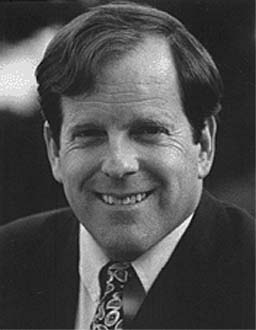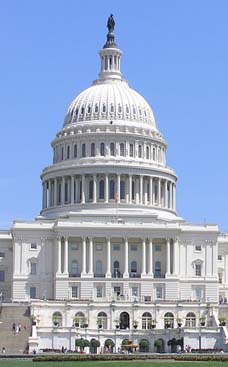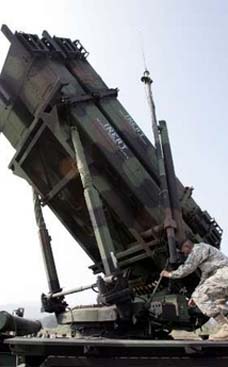2006.12.01: December 1, 2006: Headlines: Figures: COS - India: NGO's: Sierra Club: Environment: Global Warming: Jurisprudence: Huffington Post: Carl Pope writes: The Supreme Court and Global Warming
Peace Corps Online:
Directory:
India:
Special Report: India RPCV and Sierra Club Director Carl Pope:
February 9, 2005: Index: PCOL Exclusive: RPCV Carl Pope (India) :
2006.12.01: December 1, 2006: Headlines: Figures: COS - India: NGO's: Sierra Club: Environment: Global Warming: Jurisprudence: Huffington Post: Carl Pope writes: The Supreme Court and Global Warming
Carl Pope writes: The Supreme Court and Global Warming

"The important issue is not whether EPA must, or only can, regulate greenhouse pollutants -- what's also being decided here is whether the states can regulate global warming pollution themselves. If EPA can regulate CO2, then so can California and other states -- so their right to set emission standards for CO2 from motor vehicles would be protected as long as the Supreme Court concedes that CO2 is a pollutant. And the real reason the Bush Administration has fought against admitting that CO2 is a pollutant is its desire to block state action to clean up vehicle emissions." Sierra Club President Carl Pope served as a Peace Corps Volunteer in India in the 1960's.
Carl Pope writes: The Supreme Court and Global Warming
Carl Pope: On a Knife's Edge
Carl Pope Fri Dec 1, 5:47 PM ET
On the face of it, the Supreme Court seemed to be considering last Wednesday whether the Environmental Protection Agency must/can/or cannot regulate global warming-causing carbon dioxide pollution under the Clean Air Act. But behind this specific issue is a much broader question -- whether the court room door is going to be slammed in the face of ordinary Americans. The Clean Air Act says that EPA must regulate any air pollutant "reasonably anticipated" to harm public health -- or "the climate." When the
Sierra Club petitioned the EPA to follow the law, the Agency refused. The EPA said that carbon dioxide couldn't be shown to harm the climate, but that even if it was, EPA could decide not to regulate it because it thought regulation would be a bad idea.
This pretty blatantly ignored the law so we, and others, sued. But when a panel of the Court of Appeals for the District of Columbia heard the suit, it issued a split decision. One judge said EPA did have to issue regulations; one said global warming might be a myth, so EPA did not have to act; and the third judge said that Massachusetts and the other plaintiffs had no right to be courtroom in the first place, because they hadn't shown enough harm to their interests.
As a result of this week's Supreme Court arguments it now seems pretty clear that four of the Justices -- Souter, Breyer, Stevens, and Ginsberg -- think that global warming is a pollutant requiring regulation, and that the plaintiffs have shown that their states will be harmed by it. The four conservative Justices -- Scalia, Roberts, Thomas, and Alito -- seem to be leaning towards letting EPA ignore the problem. Scalia, stunningly for a Justice who says he is opposed to judicial activism, said that EPA didn't have to regulate any pollutant that wasn't a threat to public health -- ignoring the plain language of the Clean Air Act that any substance which harms property or climate is also a pollutant. (Acid rain or lead wouldn't have met Scalia's test, for example.) The swing Justice, as so often these days, is Justice Kennedy. But the key issue is unlikely to be the narrow one -- is carbon dioxide a pollutant. If the Court gets to that issue, most observers feel it would rule either that the EPA could, or the EPA must, regulate CO2. But Kennedy might rule that, because global warming has some level of uncertainty, the plaintiffs lack standing to bring any lawsuit.
The important issue is not whether EPA must, or only can, regulate greenhouse pollutants -- what's also being decided here is whether the states can regulate global warming pollution themselves. If EPA can regulate CO2, then so can California and other states -- so their right to set emission standards for CO2 from motor vehicles would be protected as long as the Supreme Court concedes that CO2 is a pollutant. And the real reason the Bush Administration has fought against admitting that CO2 is a pollutant is its desire to block state action to clean up vehicle emissions.
But the impact of a bad ruling on standing would be enormous. If the high court rules against the states and the Sierra Club and other environmental groups, it would undo decades of Congressional efforts to ensure that environmental laws could be enforced by citizens in court, by making anyone bringing such a suit prove specific, individual harm. The impact on enforcement of the Clean Air and Clean Water Acts would be devastating.
Links to Related Topics (Tags):
Headlines: December, 2006; RPCV Carl Pope (India); Figures; Peace Corps India; Directory of India RPCVs; Messages and Announcements for India RPCVs; NGO's; Environment; Global Warming; Jurisprudence
When this story was posted in December 2006, this was on the front page of PCOL:





Peace Corps Online The Independent News Forum serving Returned Peace Corps Volunteers
 | Ron Tschetter in Morocco and Jordan
On his first official trip since being confirmed as Peace Corps Director, Ron Tschetter (shown at left with PCV Tia Tucker) is on a ten day trip to Morocco and Jordan. Traveling with his wife (Both are RPCVs.), Tschetter met with volunteers in Morocco working in environment, youth development, health, and small business development. He began his trip to Jordan by meeting with His Majesty King Abdullah II and Her Majesty Queen Rania Al Abdullah and discussed expanding the program there in the near future. |
 | Chris Dodd's Vision for the Peace Corps
Senator Chris Dodd (RPCV Dominican Republic) spoke at the ceremony for this year's Shriver Award and elaborated on issues he raised at Ron Tschetter's hearings. Dodd plans to introduce legislation that may include: setting aside a portion of Peace Corps' budget as seed money for demonstration projects and third goal activities (after adjusting the annual budget upward to accommodate the added expense), more volunteer input into Peace Corps operations, removing medical, healthcare and tax impediments that discourage older volunteers, providing more transparency in the medical screening and appeals process, a more comprehensive health safety net for recently-returned volunteers, and authorizing volunteers to accept, under certain circumstances, private donations to support their development projects. He plans to circulate draft legislation for review to members of the Peace Corps community and welcomes RPCV comments. |
 | He served with honor
One year ago, Staff Sgt. Robert J. Paul (RPCV Kenya) carried on an ongoing dialog on this website on the military and the peace corps and his role as a member of a Civil Affairs Team in Iraq and Afghanistan. We have just received a report that Sargeant Paul has been killed by a car bomb in Kabul. Words cannot express our feeling of loss for this tremendous injury to the entire RPCV community. Most of us didn't know him personally but we knew him from his words. Our thoughts go out to his family and friends. He was one of ours and he served with honor. |
 | Peace Corps' Screening and Medical Clearance
The purpose of Peace Corps' screening and medical clearance process is to ensure safe accommodation for applicants and minimize undue risk exposure for volunteers to allow PCVS to complete their service without compromising their entry health status. To further these goals, PCOL has obtained a copy of the Peace Corps Screening Guidelines Manual through the Freedom of Information Act (FOIA) and has posted it in the "Peace Corps Library." Applicants and Medical Professionals (especially those who have already served as volunteers) are urged to review the guidelines and leave their comments and suggestions. Then read the story of one RPCV's journey through medical screening and his suggestions for changes to the process. |
 | The Peace Corps is "fashionable" again
The LA Times says that "the Peace Corps is booming again and "It's hard to know exactly what's behind the resurgence." PCOL Comment: Since the founding of the Peace Corps 45 years ago, Americans have answered Kennedy's call: "Ask not what your country can do for you--ask what you can do for your country. My fellow citizens of the world: ask not what America will do for you, but what together we can do for the freedom of man." Over 182,000 have served. Another 200,000 have applied and been unable to serve because of lack of Congressional funding. The Peace Corps has never gone out of fashion. It's Congress that hasn't been keeping pace. |
 | PCOL readership increases 100%
Monthly readership on "Peace Corps Online" has increased in the past twelve months to 350,000 visitors - over eleven thousand every day - a 100% increase since this time last year. Thanks again, RPCVs and Friends of the Peace Corps, for making PCOL your source of information for the Peace Corps community. And thanks for supporting the Peace Corps Library and History of the Peace Corps. Stay tuned, the best is yet to come. |
 | History of the Peace Corps
PCOL is proud to announce that Phase One of the "History of the Peace Corps" is now available online. This installment includes over 5,000 pages of primary source documents from the archives of the Peace Corps including every issue of "Peace Corps News," "Peace Corps Times," "Peace Corps Volunteer," "Action Update," and every annual report of the Peace Corps to Congress since 1961. "Ask Not" is an ongoing project. Read how you can help. |
Read the stories and leave your comments.

Some postings on Peace Corps Online are provided to the individual members of this group without permission of the copyright owner for the non-profit purposes of criticism, comment, education, scholarship, and research under the "Fair Use" provisions of U.S. Government copyright laws and they may not be distributed further without permission of the copyright owner. Peace Corps Online does not vouch for the accuracy of the content of the postings, which is the sole responsibility of the copyright holder.
Story Source: Huffington Post
This story has been posted in the following forums: : Headlines; Figures; COS - India; NGO's; Sierra Club; Environment; Global Warming; Jurisprudence
PCOL35340
08


















